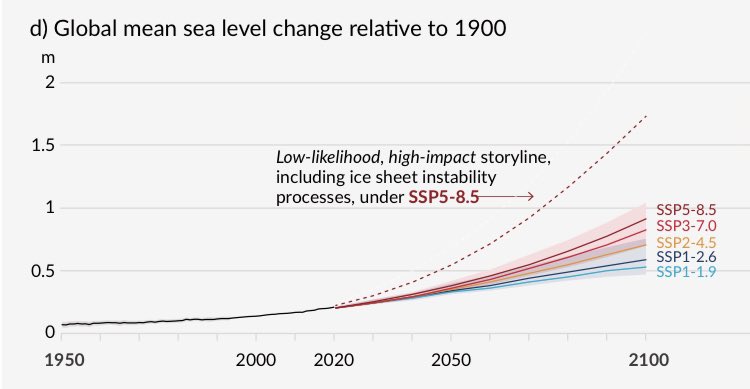pray
Thread by @Jasonvj2005 on Thread Reader App – Thread Reader Apphttps://threadreaderapp.com/thread/1475065873224372235.htmlThe Thwaites Glacier in Antarctica is larger than the Czech Republic, Austria and Switzerland combined, it is already melting and is responsible for 4% of the global rise in sea level.
However, researchers from the American Geophysical Union have now found huge diagonal cracks across the ice shelf that are growing ever faster. The prognosis: in the next five years the ice mass could collapse suddenly. What would that mean?
The ice shelf will likely break up into countless icebergs, and the rest of the glacier will then drain into the sea about three times faster. For comparison: in the last 30 years the pace has "only" doubled.
In the best-case scenario, the contribution to sea level rise increases by 1%. In the long term, his contribution would be 65cm. But worse, the Thwaites Glacier is like a plug. When it melts, the neighboring glaciers slide into its basin and melt too.
As a result, the entire ice in West Antarctica is gradually disappearing and the sea level is rising by up to 3.3 meters. And the ice cannot come back, because the oceans are much warmer than when the great glaciers were formed. Gone is gone.
Let's put that in a context: This is exactly what the IPCC warned about this year with "ice sheet instability". Our maps would have to be redrawn

Most likely, there is nothing we can do about the collapse. Millions of people are practically dead, just not yet dropped. NOW should our preparations begin to organize asylum for the displaced in the industrialized countries. It will be historically unique.
This message really comes at the wrong time. Only a few weeks ago, strong statistical evidence was found in Greenland that the egg melt is now irreversible. Shortly before that, a study predicted a sea level rise of 5cm PER YEAR from 2060 onwards.
Every five years the sea level would rise as much as it has from the beginning of industrialization until today. The power of exponential growth, experienced first hand ...
I have simplified a few things: There are other processes at work, the glacier melts, for example, through a kind of tide pump "from below". It is essential that we are entering a phase in which the climate crisis is being driven by factors over which we can no longer influence.